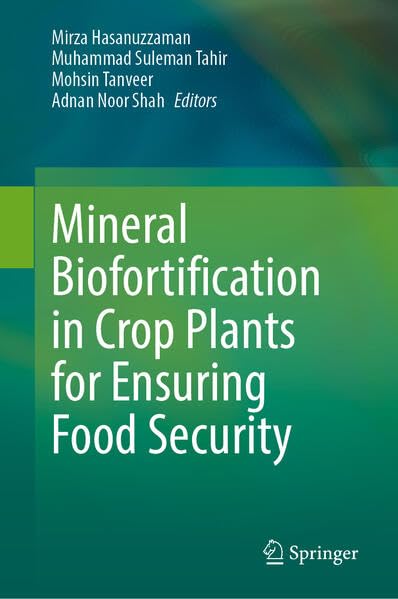

Mineral Biofortification in Crop Plants for Ensuring Food Security
Mirza Hasanuzzaman, Mohsin Tanveer, Muhammad Suleman Tahir, Adnan Noor Shah
This book provides a comprehensive summary of the recent advances in the biofortification of plants under climate change and how it affects food security globally. The need for mineral biofortification to eradicate or alleviate malnutrition through sustainable agriculture is also discussed. Biofortification of edible plants is considered the most appropriate approach to alleviate nutritional problems and nutrient deficiencies. In contrast, biofortification focuses on improving the nutritional content of the region's current agricultural biodiversity while preserving its habits and customs. Emphasis is also placed on recent advances and developments in omics, particularly metabolomics and related techniques, to unravel the potential alterations in plants caused by biofortification. The book brings together eminent scientists to present the latest developments in the field. This timely publication addresses practical scenarios of bio-fortified food production and climate change. The book focuses on the methods, techniques, and environmental changes used to enhance and improve agricultural products. This book is one of the first to provide information on the use of modern biotechnologies to modify crops for health benefits. It also examines the mechanisms of the plant responses to genetically induced biofortification, the production and responses of fortified plants under climate change, and their effects on food security. The book will be useful for students and researchers, especially crop scientists, environmental scientists, biotechnologists, botanists, and agronomists, to understand the techniques and mechanisms of biofortification, and responses of biofortified plants under climate change.
Publisher
Springer
Publication Date
11/2/2023
ISBN
9789819940899
Pages
349
Categories
Reader Reviews
Loading comments...